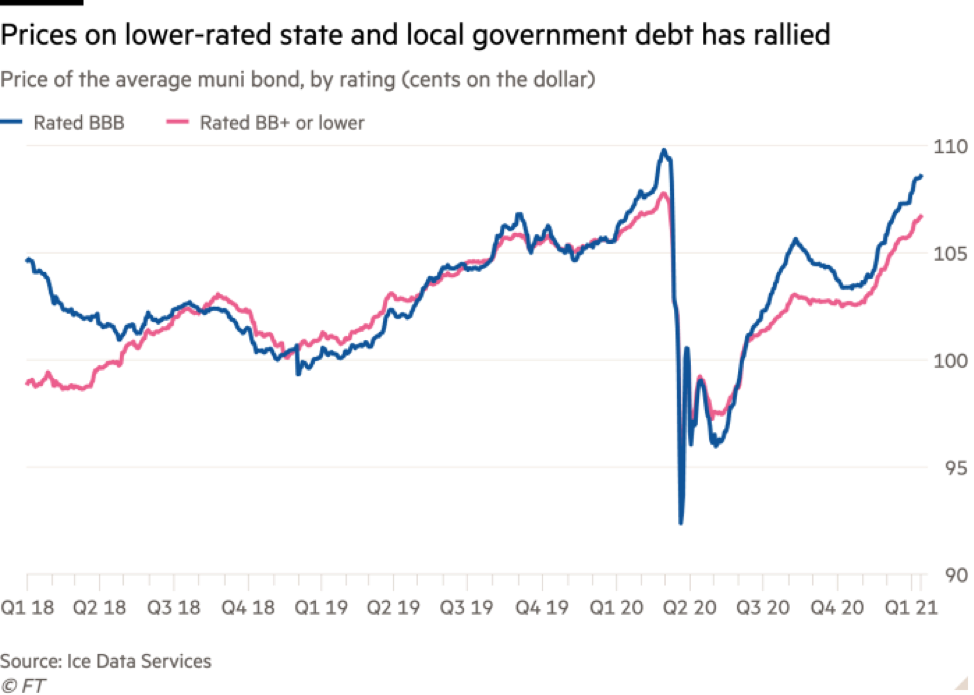
Published on January 21, 2021 / Leer en español
Dear Readers:
Today is the first full day of the Biden/Harris administration. They inherit a nation besieged by a raging pandemic still spreading at a record pace; a battered economy; widespread racial and ethnic strife; insidious social unrest; and a precarious global position. And while President Biden and his team begin their term well prepared with reams of legislative bills and executive orders, the magnitude of the challenge should not be underestimated. Especially at a time when the political forces in Washington are basically evenly divided: the Democrats hold only an 11 vote majority in the House, while the Senate is literally split 50/50.
In addition, both major parties also face deep-rooted internal divisions: the Republicans between the radical Trumpist faction and the more traditional Reagan Republicans; and the Democrats between the hardcore progressives and the centrist/incrementalist liberals. In the end, the success of the Biden/Harris administration in addressing the manifold crises they have inherited will depend on their deftness in navigating these tempestuous political waters.
—Sergio M. Marxuach, Editor-in-Chief
Insights + Analysis from CNE

Biden’s Rescue Plan
By Rosanna Torres – Director, Washington D.C. Office, and Sergio M. Marxuach, Policy Director
President Joe Biden unveiled last week a $1.9 trillion COVID-19 relief package to help stabilize the faltering U.S. economy. According to Moody’s Analytics estimates, the plan will increase real GDP by “more than 7% in annualized terms in the first quarter of this year, despite the intensifying pandemic, and to almost 8% for all of 2021.”
In general, the Biden Plan can be divided into three programmatic categories: (1) Pandemic Response ($400 billion); (2) Direct Relief to Families ($1trillion); and (3) Support for Communities and Small Businesses ($440 billion). Among the Plan’s highlights, we find the following:
- National vaccination program: $20 billion for a vaccination program in partnership with states, localities, tribes, and territories.
- Expanded testing: $50 billion to expand testing, cover the purchase of rapid tests, expand lab capacity and help schools and local governments with testing protocols.
- School funding: $130 billion to help schools reopen. The funds can be used to reduce class sizes and modify spaces for social distancing, improve ventilation and provide personal protective equipment. In higher education, roughly $35 billion in funding would go to public institutions, including community colleges and historically Black colleges.
- Stimulus checks: The proposal includes $1,400 in direct funds for individuals on top of the $600 in aid approved by lawmakers last month.
- Expanded unemployment benefits: Congress approved in December $300 in additional unemployment benefits through mid-March. The Biden plan increases the benefits to $400 per week and extends the program through September. The proposal would also extend assistance for people who have exhausted their regular benefits, as well as those who do not typically qualify for unemployment insurance programs, including self-employed people and gig workers.
- Eviction protection: The plan extends eviction and foreclosure moratoriums to the end of September. Biden is also proposing an additional $25 billion in rental assistance on top of the $25 billion allocated in the bill passed by Congress in December.
- Providing U.S. Territories with $1 billion in additional nutrition assistance for their residents. The Biden plan increases the Nutrition Assistance Program block grant to help thousands of working families in Puerto Rico, American Samoa, and the Commonwealth of the Northern Mariana Islands put food on the table for the duration of the pandemic.
- Minimum wage: Biden’s proposal also calls on Congress to raise the minimum wage to $15 per hour.
- Help for small businesses: $15 billion in grants for small businesses. The proposal would also attempt to leverage $35 billion in funds into $175 billion for loans for small businesses.
- Aid to local governments: $350 billion in emergency funding for state, local and territorial governments to keep front-line workers paid, distribute vaccines, increase testing, and reopen schools.

Beyond President Biden’s Rescue Plan
By Jennifer Wolff, Ph.D. – Director, Madrid Policy Bureau
President Biden’s American Rescue Plan brings much-needed relief to Puerto Rico. However, the Plan must only be seen as one of many pieces of a very complex jigsaw puzzle. Coupled with protracted stagnation, a public debt crisis, and the havoc caused by Hurricane Maria, economic recovery from the pandemic presents Puerto Rico with particular long-term challenges.
Beyond the short-term palliative measures contemplated in President Biden’s Plan – the $1,400 check for individuals, for example – experts agree that post-pandemic recovery will necessitate massive investments in order to overcome the “shock” that lockdowns and restrictions to mobility have brought to productive infrastructures throughout the world.
Puerto Rico will not be an exception and will need to face the structural challenges posed by the “new normality” of a post-COVID world: the increasing digitalization and automatization of economic activity, the global realignment of supply and value chains, and the increasing need for governments to invest ever more resources in ensuring social cohesion. How can the island start framing mid- and long-term policies in this direction? A survey of European think tanks and economic intelligence groups provide important insights for the island.
Data Snapshot
Municipal Bond Prices

According to the Financial Times, “Investors have piled into municipal bonds since Democrats clinched control of the Senate last week, as money managers positioned themselves for billions of dollars of aid to cash-strapped local governments. Prices of lower-rated municipal bonds have surged in the lead-up to the announcement of US president-elect Joe Biden’s $1.9tn stimulus plan on Thursday evening, which included $350bn for state and local governments dealing with the fallout from the coronavirus crisis.”
This is good news for municipal borrowers, as they will be able to access the bond market at lower interest rates, as the yield on a bond moves in inverse proportion to its price. Is it also important for Puerto Rico, as the Fiscal Oversight and Management Board considers the interest rate coupon on the new bonds to be issued under the Plan of Adjustment that will be proposed to the creditors of the Commonwealth’s central government in the near future.
On Our Radar...
![]() “Post-Truth is Pre-Fascism” – Writes Timothy Snyder, history professor at Yale, “and Trump has been our post-truth president. When we give up on truth, we concede power to those with the wealth and charisma to create spectacle in its place. Without agreement about some basic facts, citizens cannot form the civil society that would allow them to defend themselves. If we lose the institutions that produce facts that are pertinent to us, then we tend to wallow in attractive abstractions and fictions.”
“Post-Truth is Pre-Fascism” – Writes Timothy Snyder, history professor at Yale, “and Trump has been our post-truth president. When we give up on truth, we concede power to those with the wealth and charisma to create spectacle in its place. Without agreement about some basic facts, citizens cannot form the civil society that would allow them to defend themselves. If we lose the institutions that produce facts that are pertinent to us, then we tend to wallow in attractive abstractions and fictions.”
![]() White Supremacy – Ronald Brownstein reports for The Atlantic on how “for four years, Donald Trump downplayed the risk of white-supremacist violence and denied that racial bias is pervasive in law enforcement.” And how “in a single, searing day, the assault on the U.S. Capitol exposed the price of both of those choices—and may have provided Joe Biden new political momentum for reversing direction on each front.”
White Supremacy – Ronald Brownstein reports for The Atlantic on how “for four years, Donald Trump downplayed the risk of white-supremacist violence and denied that racial bias is pervasive in law enforcement.” And how “in a single, searing day, the assault on the U.S. Capitol exposed the price of both of those choices—and may have provided Joe Biden new political momentum for reversing direction on each front.”
![]() Work/Life Balance – “Maria Fernandes died at the age of thirty-two while sleeping in her car in a Wawa parking lot in New Jersey. It was the summer of 2014, and she worked low-wage jobs at three different Dunkin’ Donuts, and slept in her Kia in between shifts, with the engine running and a container of gasoline in the back, in case she ran out. In the locked car, still wearing her white-and-brown Dunkin’ Donuts uniform, she died from gasoline and exhaust fumes.” Historian Jill Lepore writes about what is wrong with the way we work in this piece for The New Yorker.
Work/Life Balance – “Maria Fernandes died at the age of thirty-two while sleeping in her car in a Wawa parking lot in New Jersey. It was the summer of 2014, and she worked low-wage jobs at three different Dunkin’ Donuts, and slept in her Kia in between shifts, with the engine running and a container of gasoline in the back, in case she ran out. In the locked car, still wearing her white-and-brown Dunkin’ Donuts uniform, she died from gasoline and exhaust fumes.” Historian Jill Lepore writes about what is wrong with the way we work in this piece for The New Yorker.
